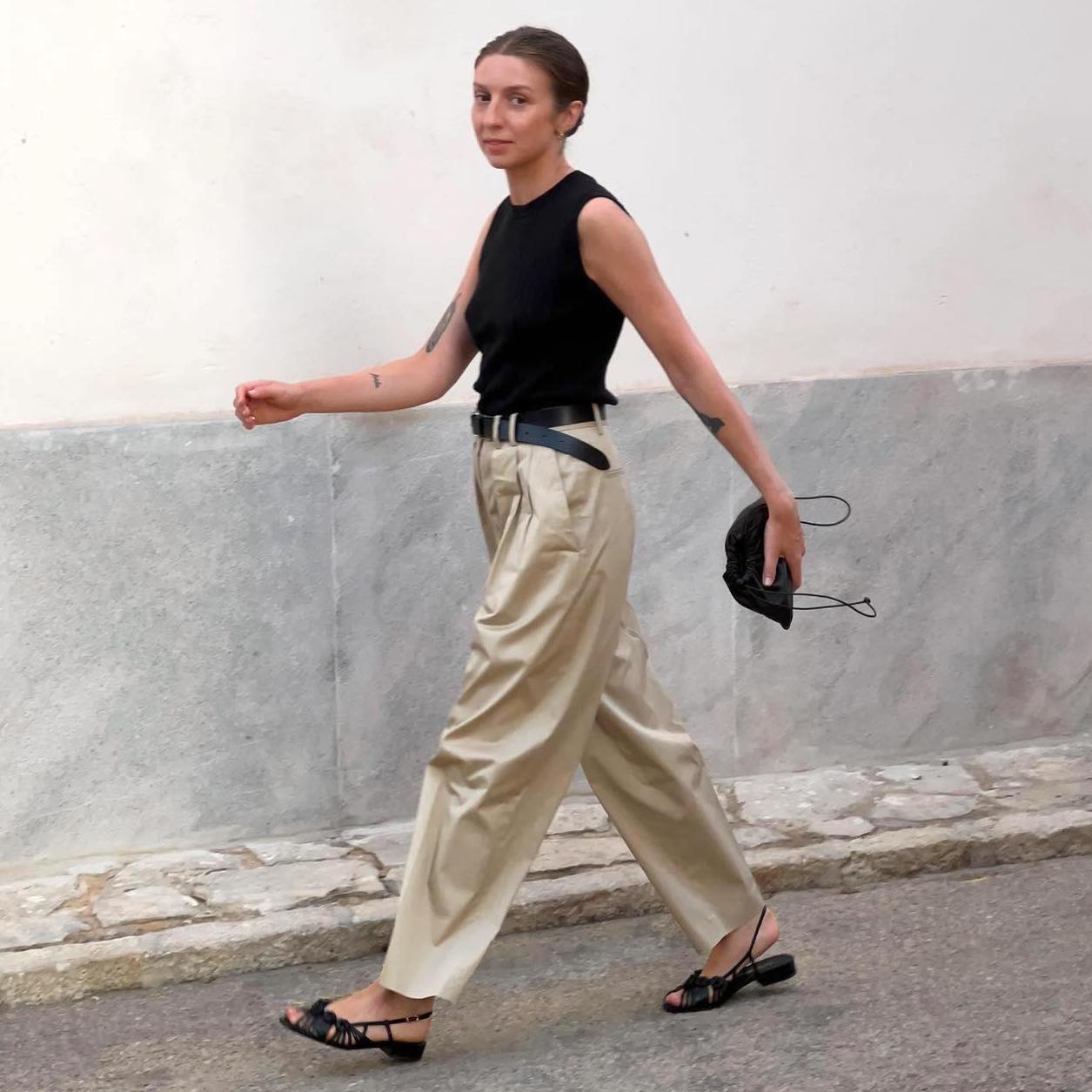6 Summer Diet Myths We Should All Stop Believing (and What to Try Instead)
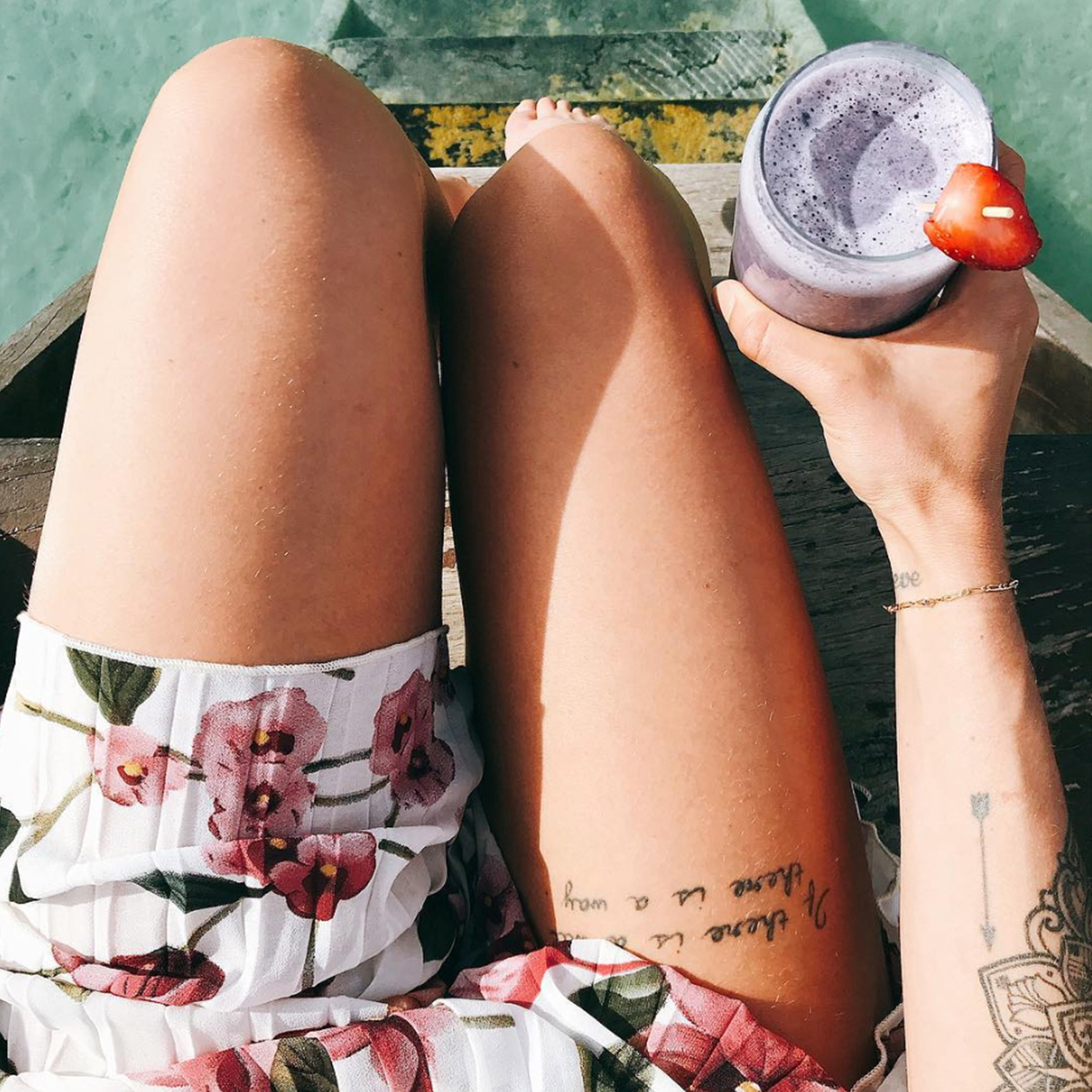
Regardless of how we approach food and dieting, the subject always seems to present a double-edged sword. Of course, it's important to make healthy choices in order to keep our bodies in tip-top fighting shape, but our society's omnipresent and stifling diet culture has made a clean cutoff jagged and complicated. What's too healthy? What's not healthy enough? What the hell does "healthy" even mean?
To be perfectly honest, there are too many perspectives, opinions, prescriptions, and even statistics to form a well-defined understanding or definition. What's in one year is out the next. What one nutritionist says is sometimes opposed by another. And though our food intake should be one of the least complicated aspects of our life (especially considering we live in a country where just 5% of households are characterized as having government-defined "low food security"), a consuming obsession with food feels eerily rampant. For starters, it's estimated that more than 30 million Americans suffer from an eating disorder, and out of all mental illnesses, this type of disease has the highest mortality rate. (For context, roughly every hour, one person dies as a direct result of having an eating disorder, and statistically speaking, one in five women who have anorexia will commit suicide.)
And while it may seem like I'm treading off course here, I'm not. Take it from someone whose personal struggle with anorexia stemmed from the initial (and innocent) quest to lose a few pounds pre–bathing suit season, even small, seemingly innocent yet restrictive dictations regarding diet advice can have potentially life-changing consequences. Of course, not everyone who works to clean up their diet will develop an eating disorder, but it is important, nonetheless, to consider how our culture approaches dieting—especially come summer when there's an even greater emphasis placed on our body's size and shape.
That being said, back to that double-edged sword I mentioned right off the bat. Because it's still natural and okay to want to eat healthily and adopt a summer diet strategy that will help you feel like your best self. The difficulty, however, is pinpointing, and sticking to, a balance and healthy middle ground within the murk. So to help point us in the right direction, I reached out to two different experts: holistic nutritionist Meryl Pritchard and Lisa Moskovitz, RD, CDN, CEO of The NY Nutrition Group. The end goal is to clear up which summer dietary tactics are outdated myths and which body-kind practices we can adopt in lieu. Ahead, six outdated diet myths that deserve to die for good and what to do instead. Keep scrolling.
Myth #1: You Should Cut All Carbs
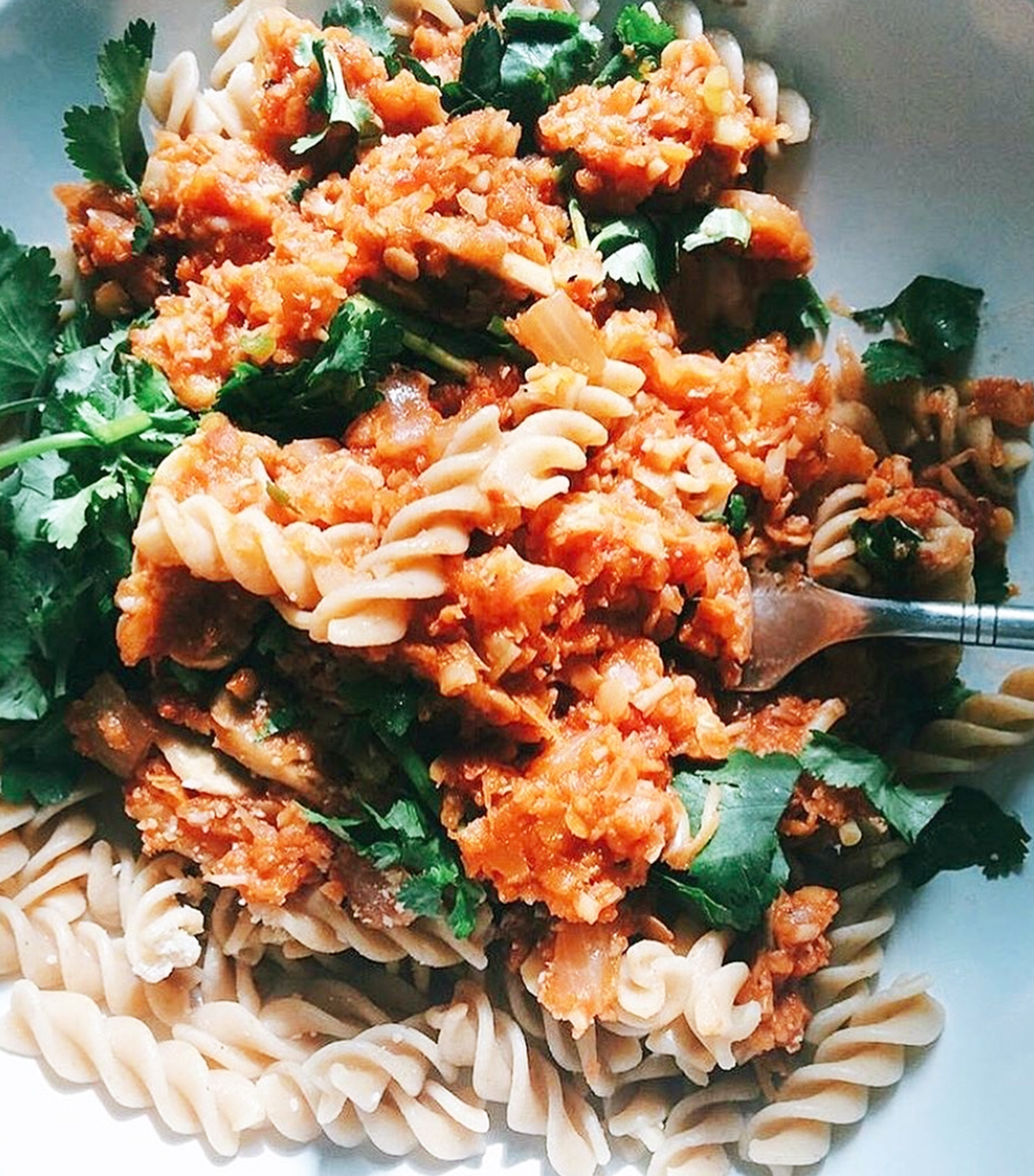
Despite the fact diet culture loves to demonize carbohydrates, they're actually an essential aspect of our food intake, and without them, we won't feel great while taking part in summer festivities (especially if you're female, by the way).
"First of all, avoiding all carbohydrates is virtually impossible because fruits and veggies also contain carbs. Plus, this diet myth is actually unsustainable long-term and can even make you hungrier," Moskovitz tells us. "Restricting any food groups, especially one as important as carbohydrates, will almost surely backfire and have you craving even richer foods later on such as pizza, pasta, bread, and sweets, which can be easy to overindulge in."
What to try instead: Of course, enjoying these kinds of foods is healthy in moderation, but to feel energized and clear-headed, Moskovitz recommends choosing complex forms of carbohydrates such as fruit, vegetables, beans, sweet potato, oats, quinoa, etc., as they'll fill you up without leading to extra water retention or possible weight gain down the road.
"Carbohydrates are a macronutrient and one of the main three suppliers of energy our bodies require on a daily basis in addition to protein and fat," Pritchard shares. "Carbohydrates include sugars, fiber, and starch, which are converted to glucose and function as your main energy source. When you exclude or reduce carbohydrates, you'll typically increase another macronutrient like fat or protein. Because neither fat nor protein contain fiber, this could affect your digestion if done incorrectly." The solution: Experiment with safely adjusting the number of carbohydrates you eat and pay attention to your body's response—everyone is different, and some may feel better consuming more or less.
Myth #2: Juicing Is Healthy
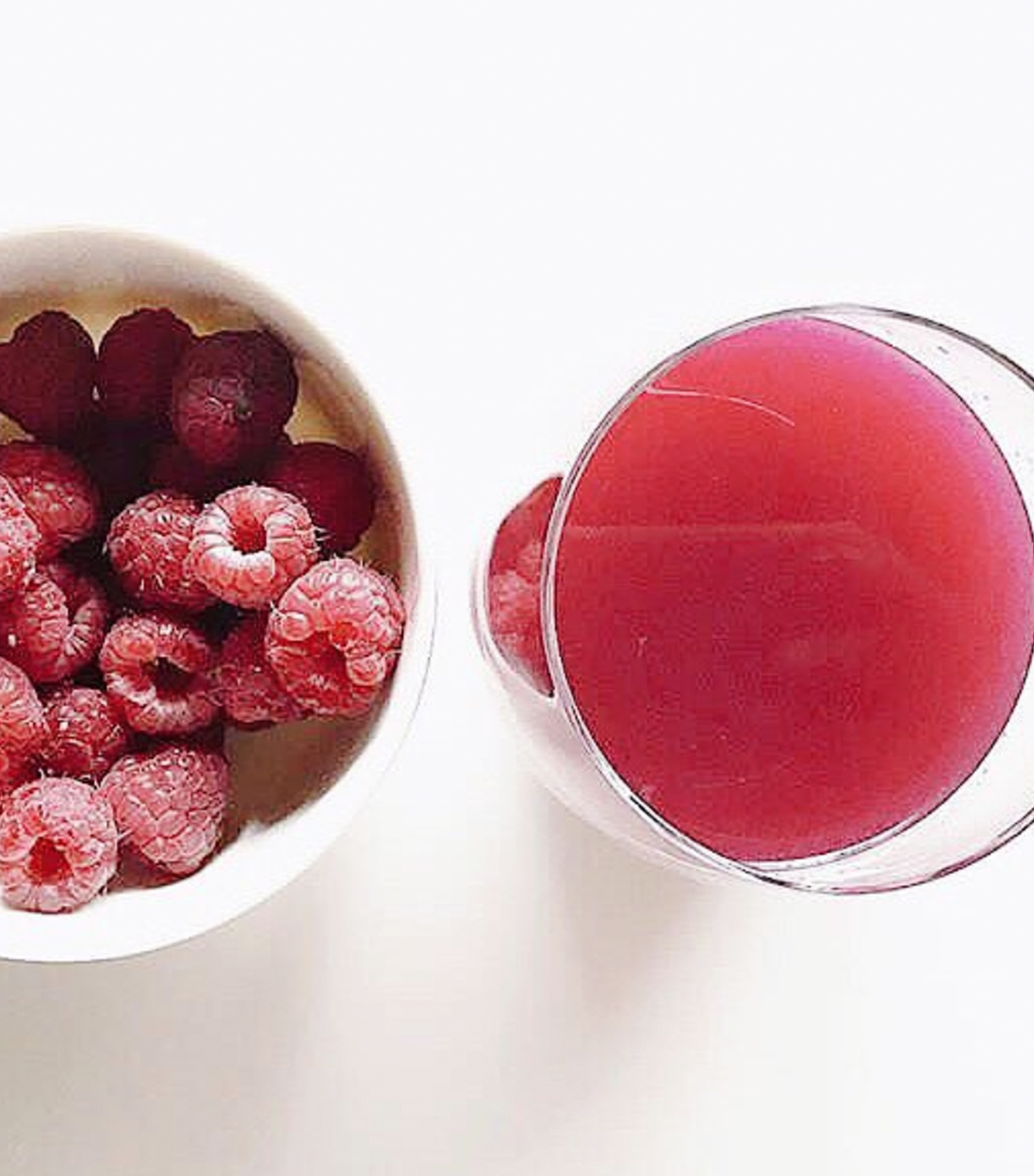
Although Moskovitz says a juice here and there may be a beneficial way of getting some extra produce into your diet, the majority of juices have a deficit of fiber and protein, and a sky-high amount of sugar, which isn't fabulous for keeping blood sugar levels (and hanger) stabilized.
"The juice fad is luckily fading, and I think most people know by now that juice cleansing is not a solution to improving your health or losing weight. Our bodies don't need to cleanse, because we're detoxing naturally, constantly, every day," Pritchard clarifies.
What to try instead: Pritchard explains it's much more beneficial to fill your plate with whole, minimally processed forms of produce (i.e. fruit and vegetables in their natural form). Plus, she says, don't get overly caught up in the current trend of thinking of fruit as "bad." Spoiler: It's not. And again, it's about experimenting and figuring out what your body likes.
"Fruit is full of water, fiber, and natural sugar (glucose), which your body actually uses as fuel. Plus, the fiber in whole forms of fruit makes the sugars less concentrated," Pritchard says. "Fruit also contains amazing vitamins, minerals, and powerful antioxidants. Antioxidants lead to anti-oxidation in the body, which ultimately protects ourselves and keeps us looking young and beautiful."
According to Moskovitz, aiming for at least three cups of veggies and one to two pieces of fruit per day is a good place to start.
Myth #3: Considering Clear Alchohol "Unlimited"
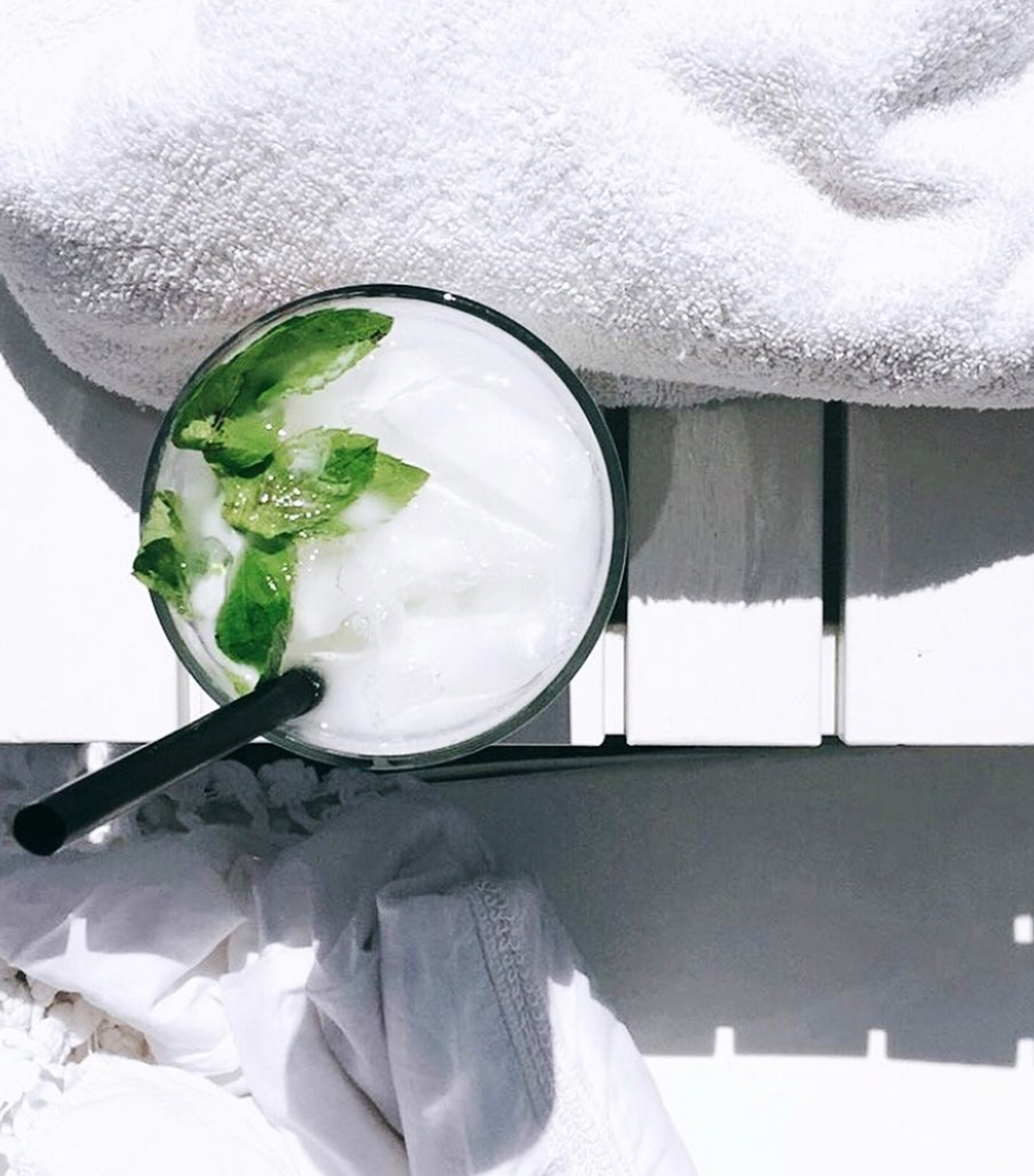
We'll be the first to admit that come summer, our body's craving for sugary cocktails and other seasonal spiked beverages experiences a serious uptick. That's okay, and our bodies are equipped to handle alcohol in moderation. However, if you're looking to make improvements in how you feel physically this summer, curbing your intake may be a good place to start. And while Moskovitz acknowledges many people switch to clear forms of alcohol like vodka in an effort to save calories, you're still likely to feel worse for wear after imbibing. Plus, as we'll talk about in a second, a "calories in versus calories out" approach is another diet myth both experts discourage.
What to try instead: Since alcohol dehydrates our body and depletes our system of what we need to feel our best, Moskovitz recommends trying to limit consumption. Instead, make sure you're getting plenty of water—especially in the summer months when our bodies need it most to stay hydrated.
"Try drinking at least two to three liters of water per day," she suggests. "Our bodies are mostly water for a reason, and increasing your intake helps to flush out unwanted water weight and keeps things running smoothly."
Myth #4: You Should Slash Your Calorie Intake to Lose Weight
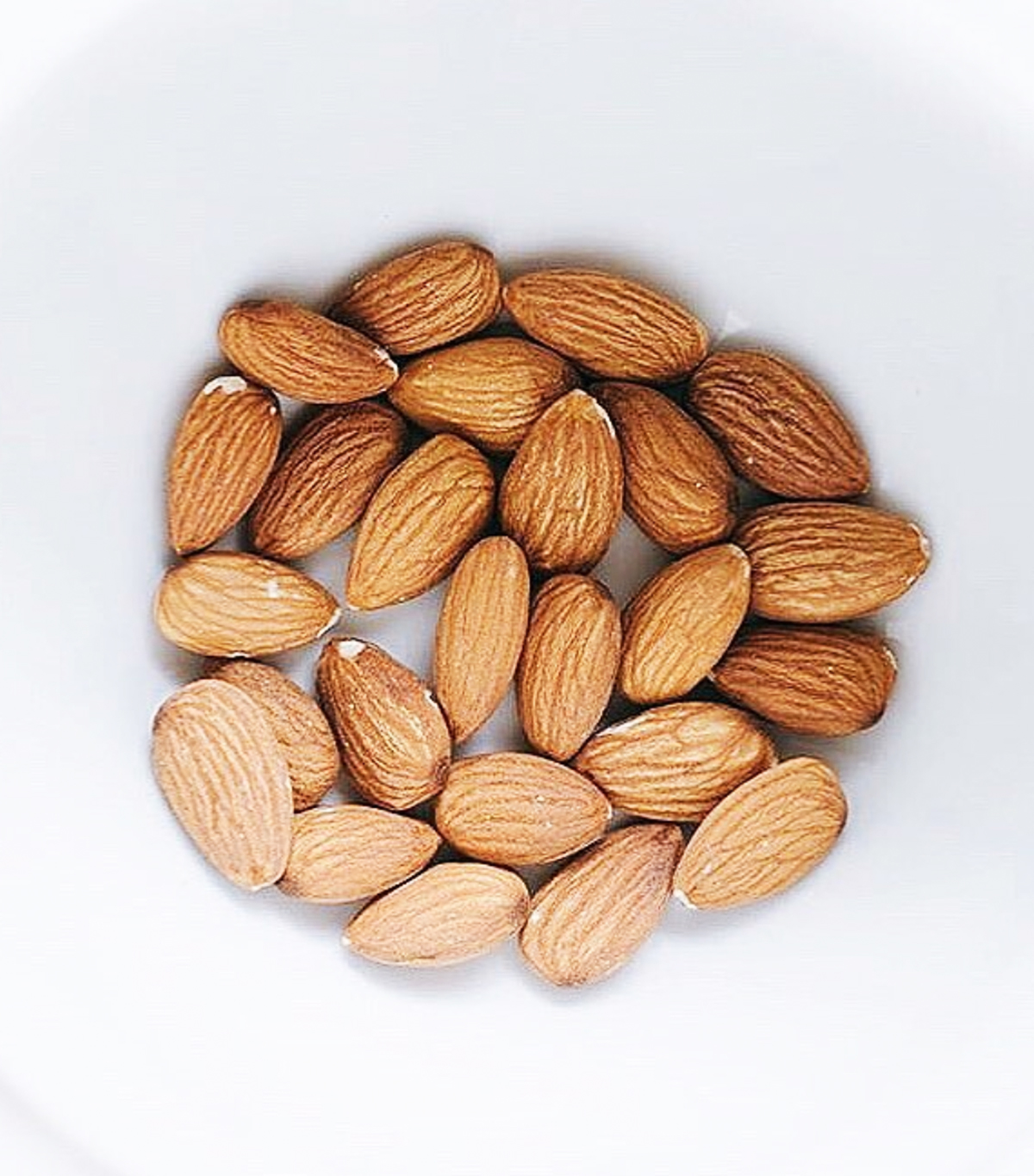
Just like restricting carbohydrates, crash dieting or eating anything less than 1000 calories per day will ultimately backfire. As Moskovitz points out, it will slow down your metabolism long-term, make you feel moody, and deplete your natural energy levels. "You need a certain amount of calories per day for optimal health, and no one should be eating less than 1200 to 1300 calories per day," she confirms.
And Pritchard agrees: "There are a few reasons why counting calories won't work for weight loss. First, not all calories are created equal—100 calories of a cupcake and 100 calories of raw almonds are both the same amount of calories, but they're going to function very differently in the body." Plus, she explains, calories don't measure how nutrient-dense food is, which is more important than a number. "Our bodies aren't computers, so a mathematical equation won't work in this case." According to Prichard, weight loss is dependent on many different factors—our diets being one and other aspects such as movement, nutrient density, breath, environment, lifestyle, and spirit, being others.
What to try instead: Refocus your mindset. "Emotions do play a large role in losing weight. We tend to store more fat as a protective mechanism, so when you feel less stressed and happier, it will probably be easier for you to lose weight." But more importantly, Pritchard suggests shifting your focus from the scale and numbers and focusing instead on feeling healthy and energized. "When you focus on getting healthy from a holistic approach, weight loss will most likely be inevitable. Nothing happens overnight, and even if you overindulge every so often, that's okay. Be gentle with yourself. I like the 80/20 rule: 80% healthy, 20% indulgent."
Another wise tip to remember come "summer body" mania: "You're allowed to look exactly the way you are and still have fun," Pritchard reminds us. (To which we say, preach.) "I remember when I struggled with body image issues, I used to think I couldn't go to pool parties because my body didn't look the way I wanted it to or the way other people's bodies looked. I would punish myself by not allowing myself to even attend a fun event where I would have to be in a bathing suit. Everyone is allowed to be in a bathing suit and enjoy themselves this summer—a big part of being healthy is about having fun."
Myth #5: Your Diet Should Be Low-Fat
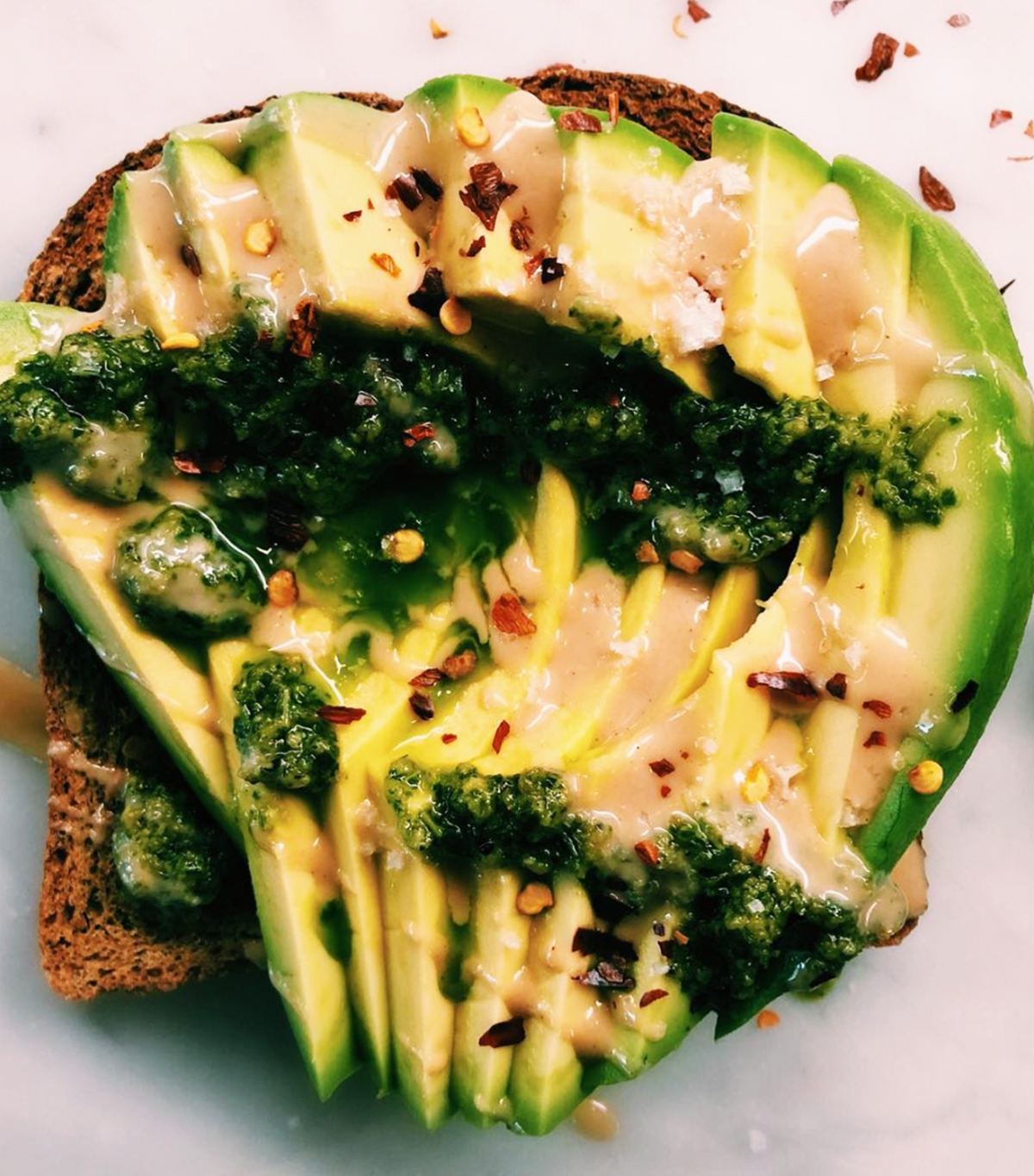
"Eating a low-fat diet was a huge craze decades ago, but we've evolved since then and have learned that eating fat won't actually make you fat," says Pritchard. Remember those macronutrients we mentioned earlier? Fat is another important one, and according to Pritchard, our body needs a sufficient amount of it in order to function properly, as it feeds our brain, lubricates joints, and serves as a second energy source. Plus, when fat is removed from a product, Pritchard points out that content is usually replaced with sugar to mask the alteration in taste or texture.
What to try instead: Okay, this is probably fairly obvious at this point, but supplementing your diet with the full-fat versus non- and low-fat options is a great way to improve your diet this summer. (We're already dreaming of a hearty serving of guac.) Nuts, seeds, wild-caught fish, extra-virgin olive oil, ghee, and avocados are other great sources.
Myth #6: You Shouldn't Eat After 6 P.M.

One of the most common "diet tips" we've heard over the years is to curb food intake around 6 p.m. each evening. However, it's actually a myth and pretty unrealistic.
"If you are someone who eats a lot of unnecessary or empty calories at night (aka grazing when you're bored or mindlessly have your eyes glued to The Handmaid's Tale), then this rule may be helpful," Moskovitz tells us. That being said, she also points out that due to crazy schedules, limiting all food intake to before 6 p.m. probably isn't realistic, as many of us aren't even able to sit down for an actual meal until 8 or 9 p.m. Plus, if you're going to bed too hungry, your quality of sleep will likely suffer, resulting in heightened hunger the next day.
What to try instead: If you know you won't be able to sit down to dinner until later in the night, Moskovitz recommends eating at regular intervals throughout the day to keep hunger hormones in check. She suggests eating roughly every four to five hours—although everyone is different—as this will keep your energy levels high and hunger levels low. Her one caveat: You may want to curb your intake of salt and refined carbohydrates before hitting the sheets, as these foods, in particular, can trigger bloating and water retention.
Next up: 10 simple "detox" drinks that require zero time to prepare.
Disclaimer
This article is provided for informational purposes only and is not intended to be used in the place of advice of your physician or other medical professionals. You should always consult with your doctor or healthcare provider first with any health-related questions.
Erin has been writing a mix of beauty and wellness content for Who What Wear for over five years. Prior to that, she spent two and half years writing for Byrdie. She now calls Santa Monica home but grew up in Minnetonka, Minnesota, and studied writing, rhetoric, and communication at University of Wisconsin, La Crosse. She studied abroad in Galway, Ireland, and spent a summer in L.A. interning with the Byrdie and Who What Wear family. After graduating from UW, she spent one year in San Francisco, where she worked as a writer for Pottery Barn Kids and PBteen before moving down to L.A. to begin her career as a beauty editor.
-
 This Founder Shares Why We Should Start Celebrating Rest
This Founder Shares Why We Should Start Celebrating RestBurnout is nothing to be proud of.
By Kia Topps
-
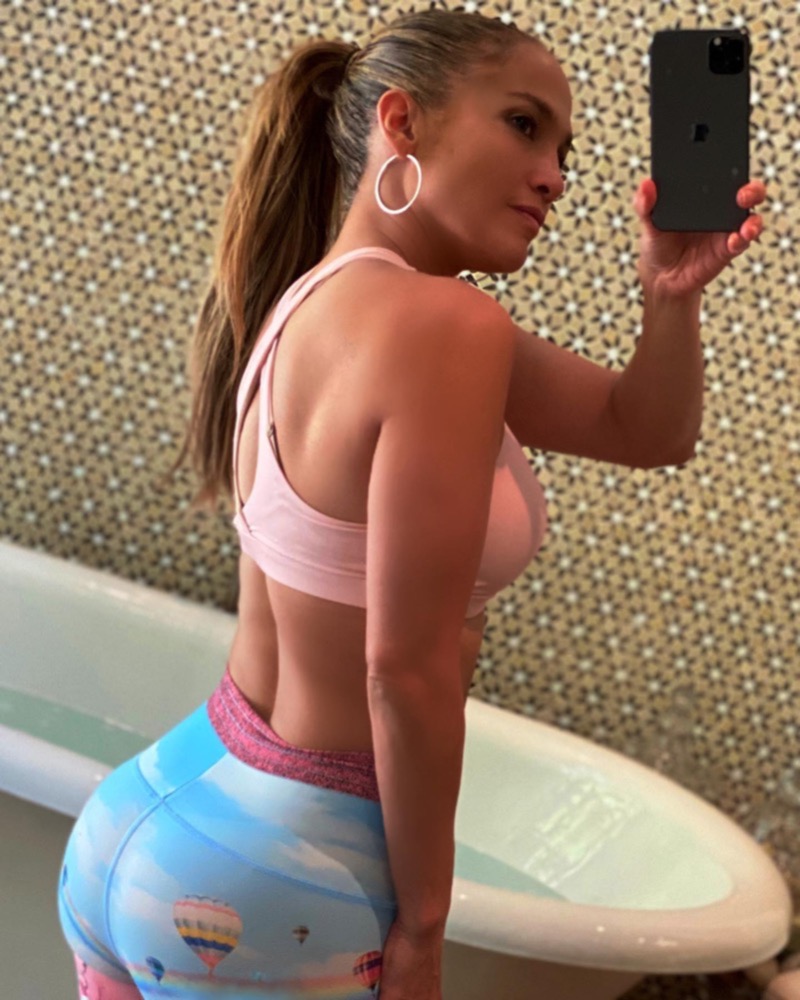 I Asked J.Lo's Trainer for His Very Best Fitness Tips
I Asked J.Lo's Trainer for His Very Best Fitness TipsGunnar Peterson has thoughts on how to get moving this season.
By Kia Topps
-
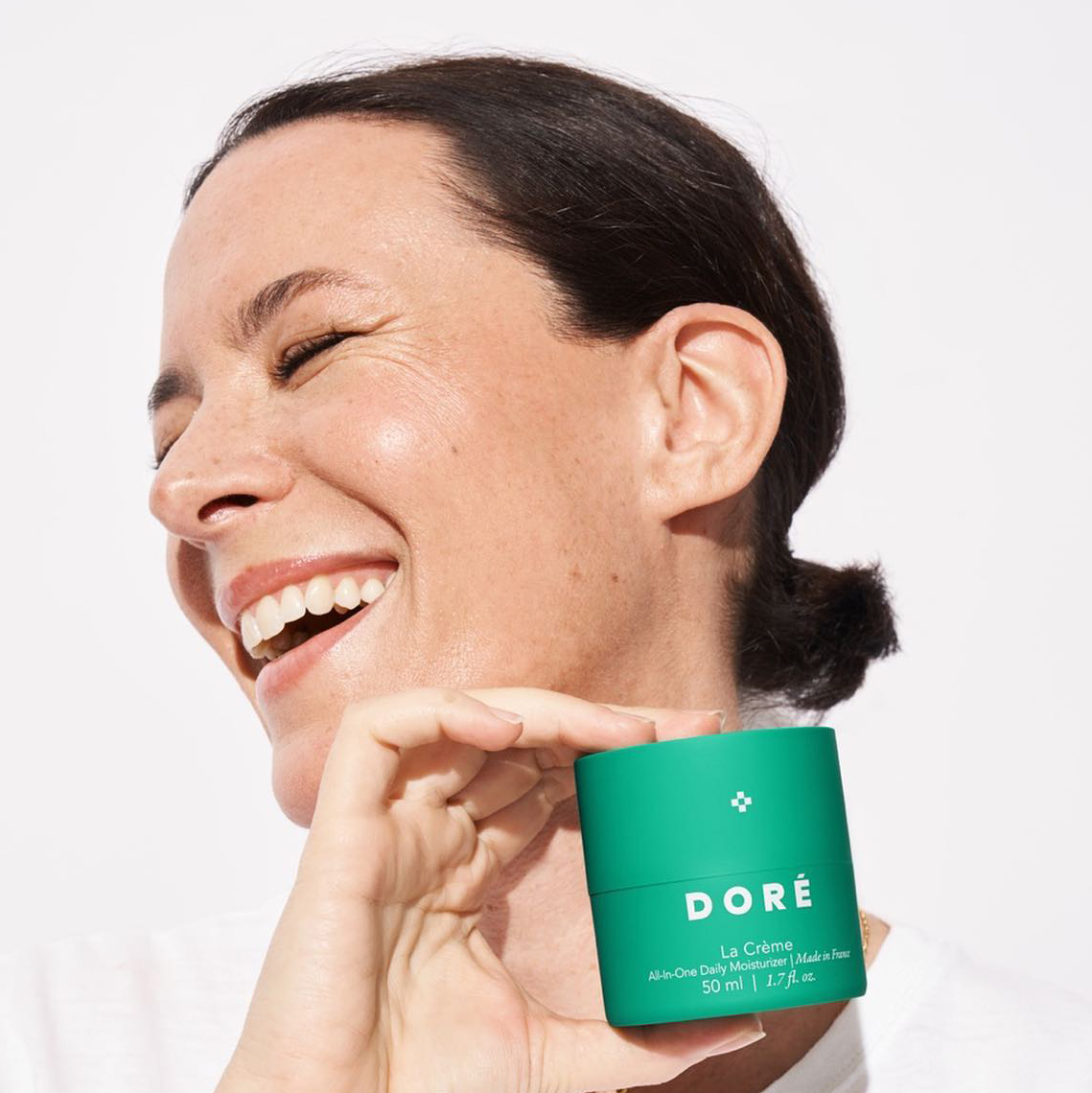 This Style Influencer Turned Founder Shares Her Favorite Ways to Start the Day
This Style Influencer Turned Founder Shares Her Favorite Ways to Start the DayA morning routine from London.
By Candice Aman
-
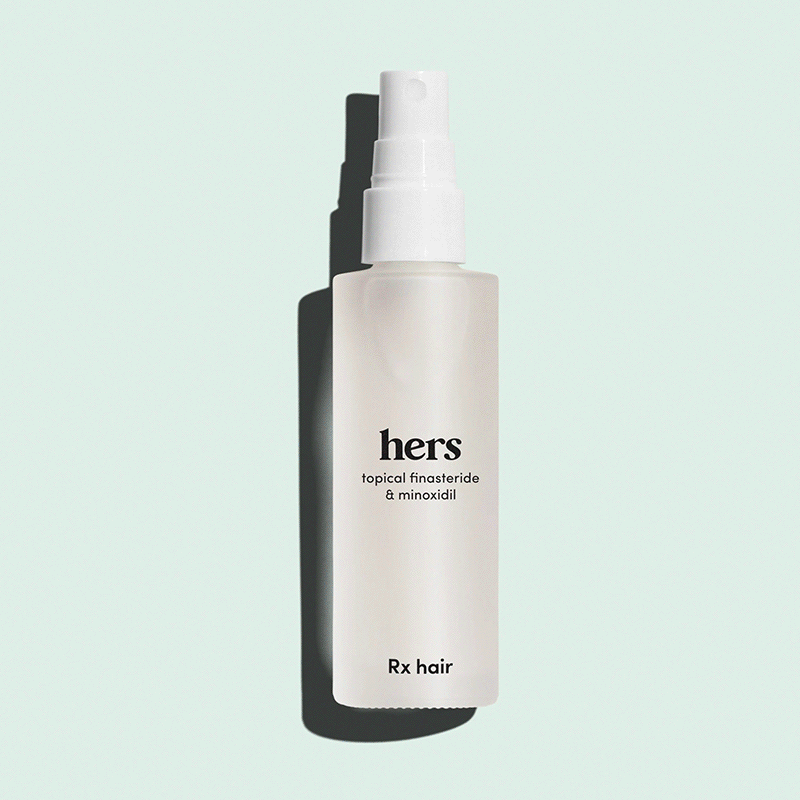 13 Products That Will Step Up Your Self-Care Game From Home
13 Products That Will Step Up Your Self-Care Game From HomeGet that glow from within.
By Natalie Gray Herder
-
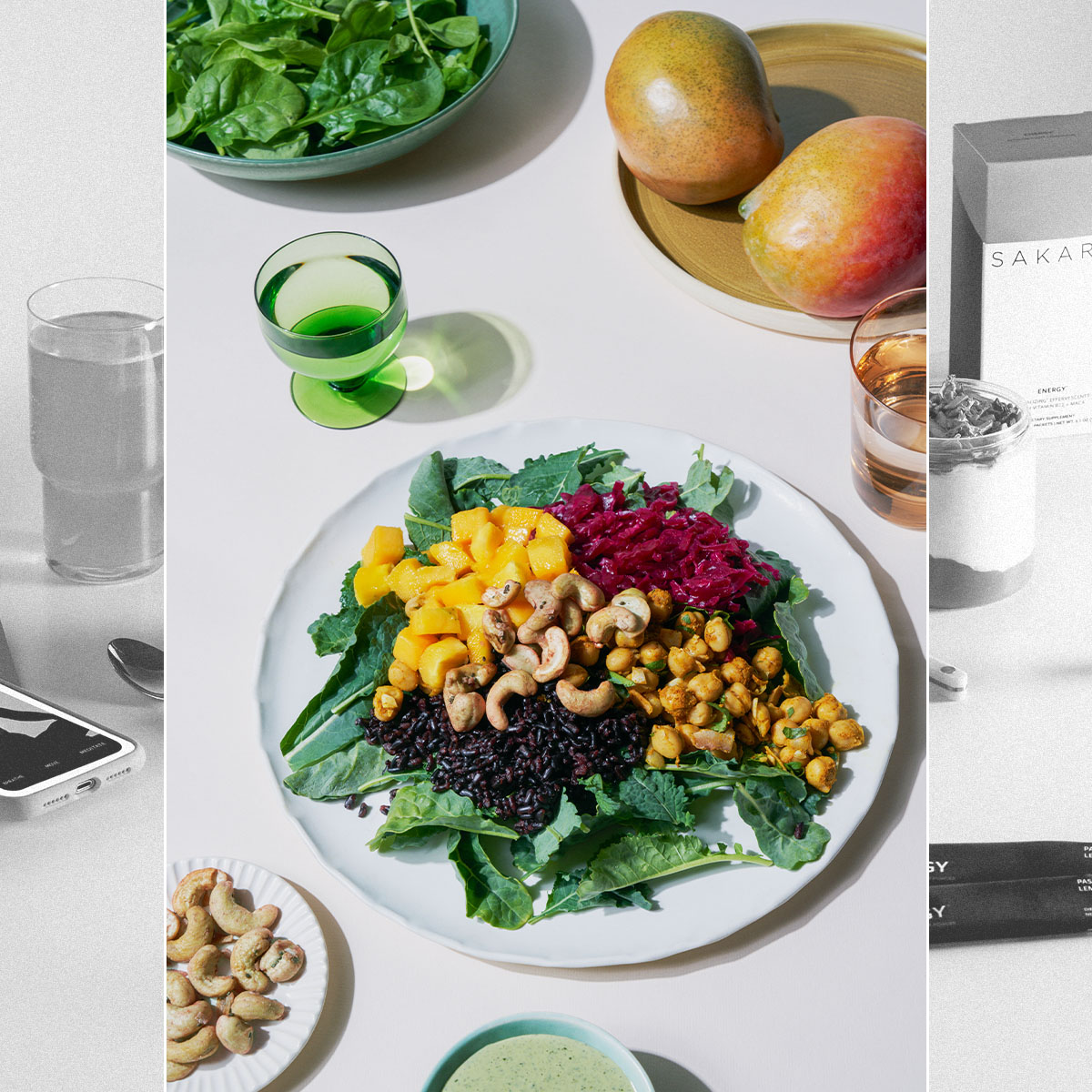 Bella Hadid and Gwyneth Paltrow Apparently Love Sakara Life, so We Tried It for 30 Days
Bella Hadid and Gwyneth Paltrow Apparently Love Sakara Life, so We Tried It for 30 DaysHere are our honest thoughts.
By Erin Jahns
-
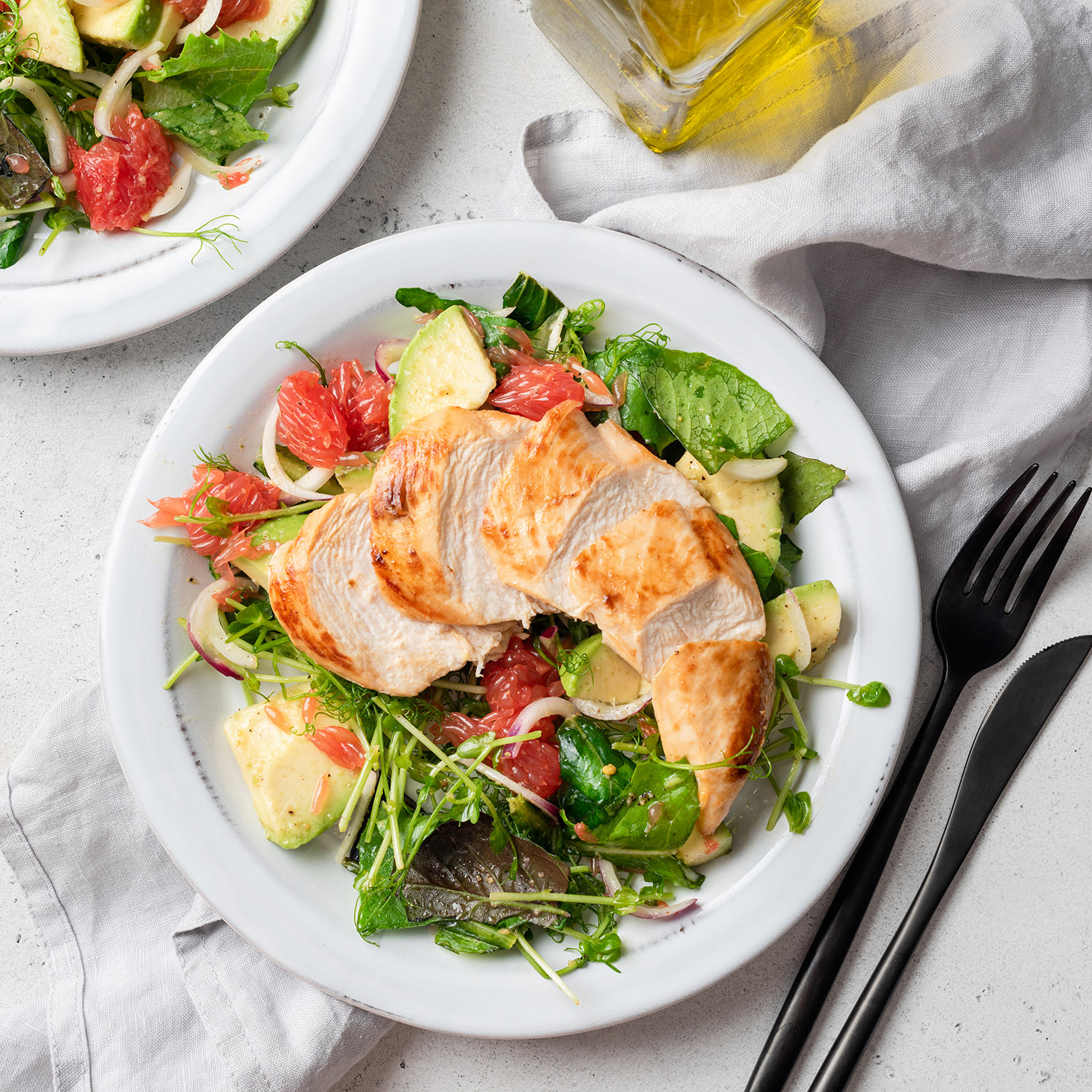 The 6 Warning Signs You're Not Getting Enough Protein
The 6 Warning Signs You're Not Getting Enough ProteinAnd what to eat to up your intake.
By Sarah Yang
-
 Everything This Professional Ballet Dancer Eats to Fuel Her for Performances
Everything This Professional Ballet Dancer Eats to Fuel Her for PerformancesHer grocery staples include high-quality French butter.
By Candice Aman
-
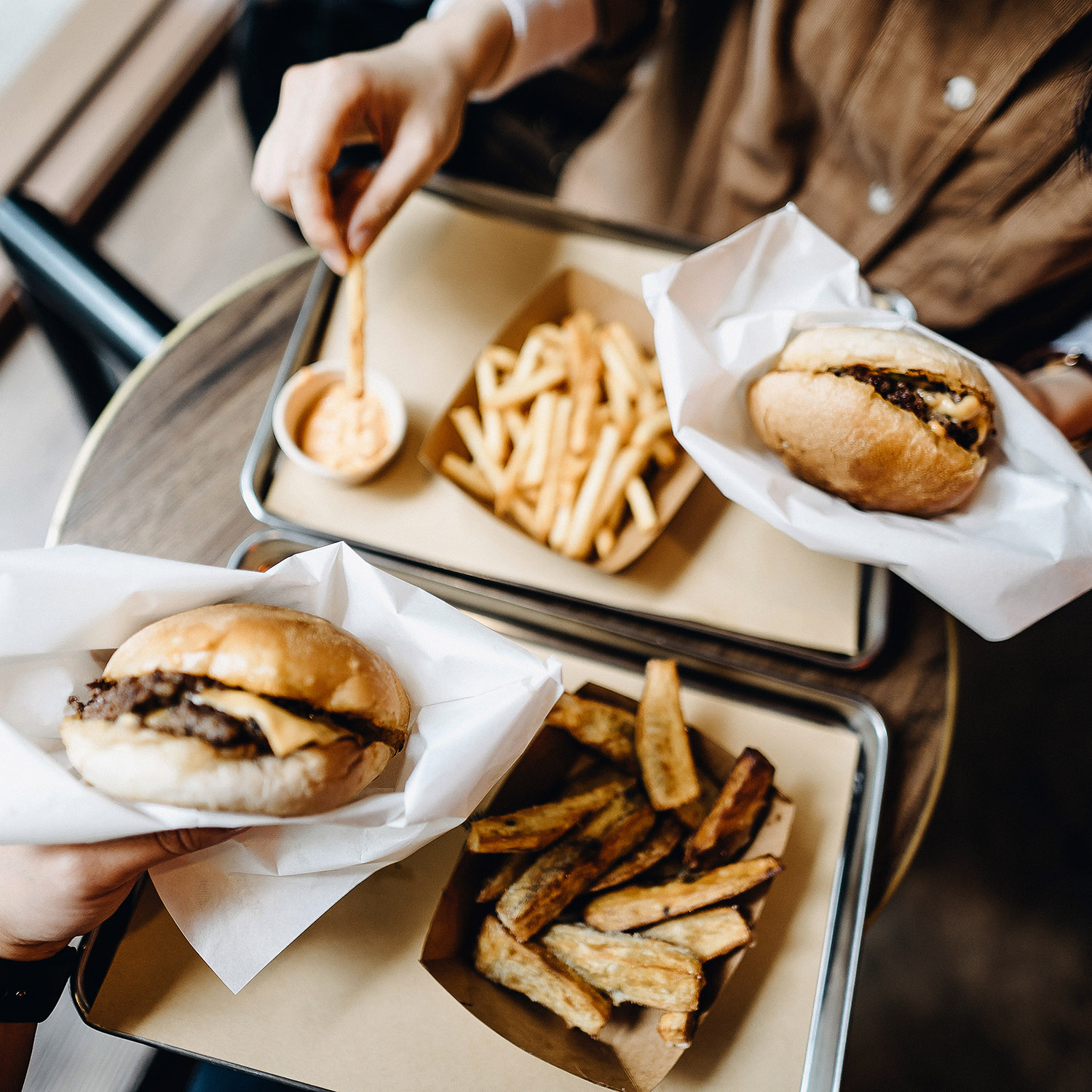 These 8 Foods Are the Worst for Rosacea—Here's What to Eat Instead
These 8 Foods Are the Worst for Rosacea—Here's What to Eat InsteadControl those flare-ups.
By Sarah Yang

